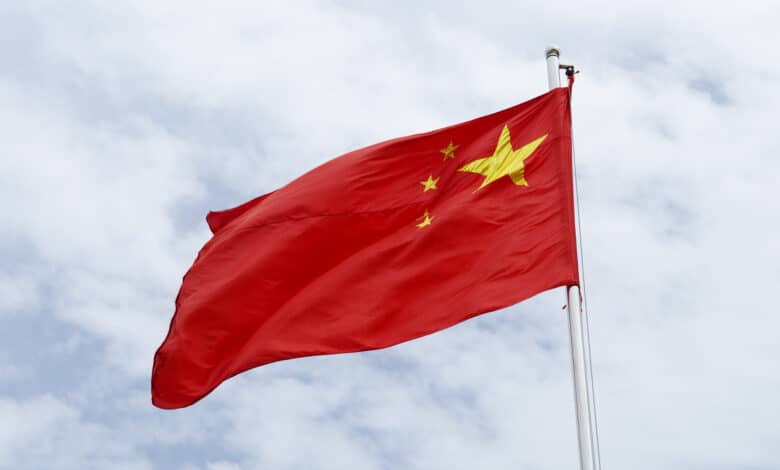
China obviously wants to take another big step towards an absolute surveillance state. The government of the People’s Republic apparently plans to control social networks even more extensively in the future. The goal is, among other things, that in the future every single comment will be controlled before it is allowed to be published.
A blow to freedom of expression
In the novel “1984” by George Orwell, the so-called Big Brother has his eye on everything and everyone. What at the time made waves as a dystopia of a surveillance state unfortunately seems to be increasingly becoming China’s model. The Middle Kingdom has now presented a draft law that makes one shudder. More precisely, the Cyberspace Administration of China (CAC) presented a new set of rules on June 17. Among other things, it aims to make social network operators more accountable. If you skim over the new regulations, there is one point in particular that causes horror among many. In the future, social networks will be obliged to check every single comment before it is published. This could be another low blow for the already virtually non-existent freedom of expression in China.
Update of an already existing law
The package of rules, which has now been presented by the Internet authority, is not really new. Rather, it already came into force in 2017. Now, however, it seems that the opportunity has been taken to revise it. As part of the update, the focus is primarily on comment functions on public blogs, forums and social networks. The authority even goes so far as to say that even real-time comments, as they are possible in livestreams, are to fall under the new control regulation. Experts speculate that the new regulation does not come about by chance, but is rather based on fear on the part of the government. In the recent past, there have been more and more statements critical of the government on the Internet. In particular, like-minded people were found on Weibo, a Chinese microblogging provider. The events on the platform, which is reminiscent of Twitter, naturally did not pass the Internet authority by, which is why it has now apparently pulled the ripcord.
TikTok sets a good example
The new regulations are likely to be particularly difficult for small blogs, which have neither the personnel nor the technical capacity to carry out comprehensive monitoring. If we draw for comparison what is currently probably the most successful and best-known Chinese social network TikTok, it becomes clear how great the pressure is on small portals and their users. In terms of censorship, TikTok has been at the forefront for quite some time. It is not uncommon for many comments to not even make it to publicly visible comment columns. Before that, they are specifically picked out and deleted.
This procedure can be observed not only in China, but also in this country. It only recently became known that TikTok also uses word filters in Germany to automatically delete comments. In order to be able to handle this mammoth task, the social network of parent company ByteDance employs several thousand people who are solely concerned with checking content. This is not done solely out of inner drive. Rather, the companies are threatened with horrendous penalties once a comment with prohibited content reaches the public.
Control threatens to degenerate into the shoreless
Of course, it is not new to accuse China’s government of censorship. However, so far these have been limited to at least certain areas. With the new regulations, there is a threat of expansion to even the smallest corner of the Internet. This will also kill the last small loopholes that dissenters had in the Middle Kingdom to exchange information with each other. So if the government really goes through with its plans, this could be the final stab in the back for freedom of expression in China. But it’s not just users who have to worry. Social network operators, who unlike TikTok do not have a gigantic censorship department, will also have to set one up sooner or later. To what extent this is even financially possible is likely to be a tricky question, especially for smaller blogs. What is particularly fatal is that there is currently a kind of limbo with regard to the new regulation.
Everyone knows that the Internet authority wants to enforce the stricter rules. The big question is just when that will happen. At worst, there could be immediate enforcement, which could pull the rug out from under many operators. According to experts, not every social network now has to fear for its existence. Rather, it is the intention of politicians that operators exercise more care when it comes to comments worthy of censorship. There seems to be a noticeable resistance in the Chinese Internet community at the moment. A few years ago, it was content per se that was the subject of censorship controls, but now comments are playing an increasingly important role. After all, the cross-section of social opinion can be read from them. However, it is currently unrealistic to subject every comment to forced control.
Concerns about freedom of expression
When the new regulations come into effect, fears are justifiably high that China’s already comprehensive censorship policy will lead to even greater restrictions on the country’s freedom of expression. The plan to possibly also hold content creators accountable is particularly perfidious. For example, people who post something on Weibo will also be subject to censorship for comments critical of the government. It is not only freedom of expression that has been considered suppressed in China for some time. Even gamers have to live with a ban on their hobby.



